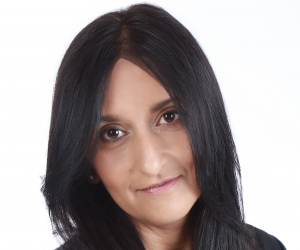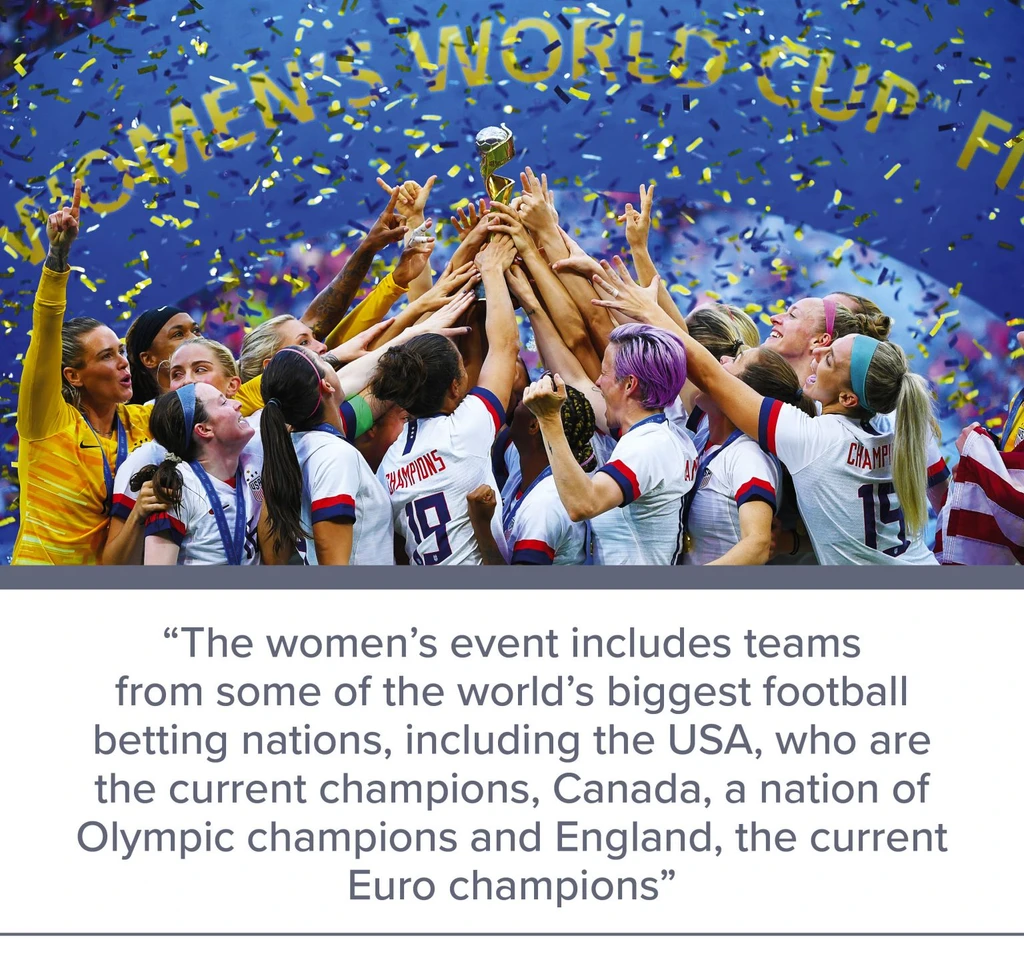This year promises to mark a pivotal moment in women’s football – the point when the women’s game finally comes into its own. But Christina Thakor-Rankin, co-founder of the All-In Diversity Project and principal consultant at 1710 Gaming, doubts operators are taking full advantage of the Women’s World Cup.
The Fifa Women’s World Cup in New Zealand and Australia this summer offers bookies worldwide a much bigger opportunity than the World Cup “proper”.
By replicating the same range of markets they offered on the men’s event, including groups and player markets, they have the opportunity to re-engage with those who bet on the men’s game.
And by tweaking the way they present these opportunities, an even bigger opportunity becomes available – to attract a whole new sports betting demographic: women.

The statistics are certainly there to back this up. The numbers from a wide range of sources, including Fifa’s own data, show that women’s football continues to be the fastest-growing sport on the planet.
Record-breaking play
The last Women’s World Cup, which took place in 2019, was watched by over 1.1 billion fans. The Women’s Euros final in 2022 not only broke all previous audience records, but also set a new attendance record for any Euros final ever: the women’s final was played in front of a crowd of 87,192, smashing the previous record of 79,115 held by the men’s game.
The trend has continued this year across both national and inter-state competitions, continuing to draw record crowds and audiences as women’s football finally hit mainstream broadcasters’ schedules.
This culminated in the Women’s FA Cup final, which saw Sam Kerr, the Australian captain and probably the best player in the world right now, scoring Chelsea’s winner in front of a sold-out Wembley – the perfect build-up to this summer’s main event.
Beyond the boot
Women’s football is not just about sport. From teams ditching white shorts to battles for equal pay, football is becoming synonymous with gender equality and female emancipation the world over.

Throw in the fact that many of the women’s teams taking part this year are also considered more skilful than their male counterparts and it’s clear that women’s football is also becoming synonymous with national pride. China, for example, has already shifted focus and effort from the men to the women, while Morocco has made history as the first Arab team to qualify.
Put all this together and the Women’s World Cup 2023 is set to be the biggest women’s sporting event ever.
At a time when the majority of the world now has some form of regulated sports betting, it also has the potential to be one of the biggest betting events ever, for several key reasons.
Wagering opportunities
The first is that the men’s World Cup is the biggest betting event in the world. With a good proportion of fans happy to also watch the women’s game, it’s relatively safe to assume that some of those who bet on the men’s event will also bet on the women’s.
Not only that, but the women’s event includes teams from some of the world’s biggest football betting nations, including the USA, who are the current champions, Canada, a nation of Olympic champions and England, the current Euro champions.
And the latest published studies suggest that the number of females who are betting and gambling is growing. In the US and Europe, the number of sports bettors identifying as female varies between 30% and 50%. In Nigeria, the latest estimates suggest that 40% of gamblers are female. Asia is reporting similar figures.
In addition, female footballers are starting to gain traction as household names and role models, something boosted by EA Sports launching FIFA 23 for PC, Xbox, PlayStation and Stadia – creating a world of opportunities for player-based markets.
And events like the World Cup are tailor-made for the higher-margin casual market where non-bettors typically get caught up in the hype, betting with hearts rather than heads – especially if the post-group stages see Australia taking on New Zealand, or the US goes up against Canada.
If that isn’t enough, there’s one final reason relating specifically to female sports bettors. Hot Paper Lantern’s last report on betting in the US found that not only do women make up 30% of the customer base, they are younger and their activity is more socially driven than traditional bettors.
In other words, Gen-Z is the group driving the growth in women’s sport.
Work to be done
With women from every part of the world coming together under the slogan “Beyond Greatness”, and team monikers including the Stone Roses (China) and Colombia’s Las Chicas Superpoderosas (literally the “Powderpuff Girls”), this is the stuff of social media and acquisition marketing dreams.
So, what are the bookies doing to capitalise on the hype?
The answer is, not a lot. In fact, just taking a quick look at a few odds comparison sites suggests that most bookies aren’t even aware that the Women’s World Cup is happening.
While many are already offering an outright market for the Men’s World Cup in 2026, barely half were offering the same market leading up to the Women’s World Cup.

The US was doing much better with all of the top five operators offering outright markets, but that’s it. There is no group, qualifier, player, continent or plethora of specials usually associated with a global event like the World Cup.
Who’s to blame?
Back in the day, sportsbooks had their own in-house odds compilers working hand-in-hand with traders. The shift towards internationalisation has seen the industry move to external odds-feeds from a limited number of providers and automated trading systems, leaving those without any internal market-making resources hamstrung.
It could be that savvy operators, having identified the scale of the opportunity, are keeping their plans under wraps and will start ramping up their offerings as soon as the regular season ends. This year’s Champions League final, with its Manchester City treble narrative, provided a compelling reason to keep things separate.
Or it could be that the majority of market-makers are male and the level of knowledge, skill, expertise or interest to support a full range of betting markets for the women’s game just aren’t there.
This is a spectacular own goal for the industry – a missed opportunity for those looking to fill the void of the quieter summer months, reflect the changing habits of existing sports bettors and, most importantly, engage with a new generation of customers.
This piece was initially intended as a discussion on how to trade the Women’s World Cup 2023. The answer is clear: hire people who fundamentally understand women’s sport.





